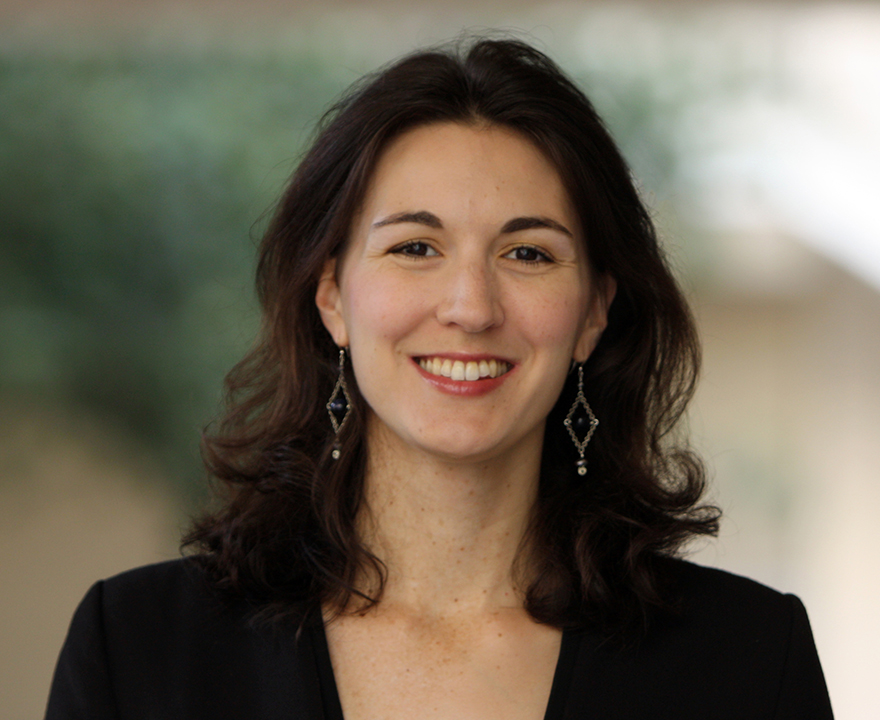The consequences of women's underrepresentation in academia for graduate students’ attitudes and retention

The consequences of women's underrepresentation in academia for graduate students’ attitudes and retention
- August 31, 2021
- UCI-led study in Plos ONE finds gendered syllabus representation, role models increase self-efficacy of some groups while diminishing confidence of others
Recent research finds that women’s representation matters when it comes to graduate students’ attitudes toward their academic careers, and these attitudes affect Ph.D. program retention. However, the consequences are complicated, says UC Irvine political science associate professor Heidi Hardt. In a recent study published in PLoS ONE, Hardt and co-authors found that increasing Ph.D. students' exposure to female academic role models positively affects certain groups of students' attitudes about their own abilities to succeed, while, at the same time, diminishing the confidence of other groups of students.
“Existing research had suggested that increasing diversity in doctoral programs should positively affect students’ academic success,” says Hardt. “But few studies had examined students’ responses to female scholars’ representation in doctoral programs. If women appear infrequently in syllabi, citations, reading lists and as tenured faculty in departments, we wanted to know if and how students are affected.”
Co-authors on this project included Shauna Gillooly, American Council of Learned Societies (ACLS) Leading Edge Program post-doctoral fellow and recent UCI political science Ph.D. recipient, and Amy Erica Smith, Iowa State University political science associate professor. They contributed equally to the study, which employed different approaches.
In the first approach, the researchers developed a survey experiment and non-experimental questions based on focus group data they collected. They then surveyed political science Ph.D. students from around the country. In the experiment, some students were exposed to a gender-diverse syllabus in research methods (i.e. 30% female authors) and others to a non-diverse syllabus (i.e. 10% female authors). Students were then asked to report how likely they would be to succeed in the course and in their respective Ph.D. programs.
“Studies have shown that – while unknown to most students - authors appearing in syllabi act as role models, with a citation in a syllabus signaling that the author has conducted research worthy of emulation,” says Gillooly. “However, scholars cite the work of female scholars infrequently, relative to women’s professional presence and their rates of publishing.”
The researchers found that, contrary to expectations, increasing women’s representation in syllabi did not affect female students’ self-efficacy. Additionally, male students expressed lower self-efficacy when evaluating the more gender-diverse syllabus. The latter was particularly surprising.
“We also found that students’ attitudes toward diversity in academia predicted their reactions more strongly than did their own gender: gender-diverse syllabi reduced self-efficacy among those students unsupportive of diversity,” says Smith.
The study’s second approach asked students to identify their graduate school role models by number and gender, and then assess self-perception of academic success. The researchers found that the more role models a student had, the higher the student judged his or her self-efficacy, regardless of student and role model gender matching. Findings also indicated that some students - female students, and particularly those valuing diversity - actively seek female role models.
“Our results ultimately suggest that exposure to female role models relates in surprising ways to Ph.D. students’ self-efficacy,” says Hardt. “Having more female role models correlates with greater expectations of academic success among certain groups of students, but with diminished expectations of academic success among other groups.”
Findings are available online at https://journals.plos.org/plosone/article?id=10.1371/journal.pone.0255095.
Share on:




connect with us